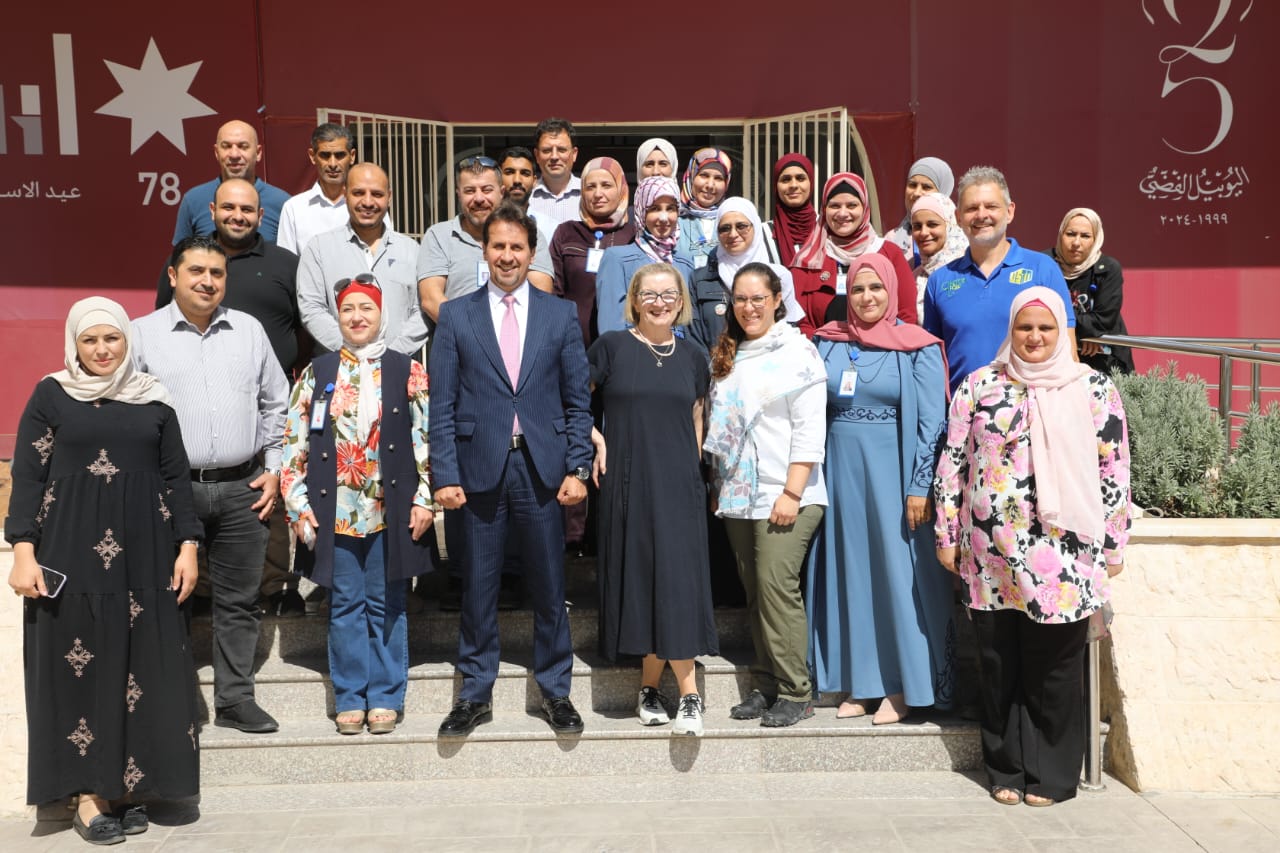Development of a prototype of low-tech, space efficient soilless cultivation (aquaponics) for refugee camps in Jordan

Swiss partners
-
ZHAW: Zala Schmautz (main applicant), Ranka Junge, Linda Tschirren, Luca Regazzoni, Laila Luthi
Partners in the MENA region
-
National Agricultural Research Center NARC, Jordanie: Luna Al-Hadidi (main applicant), Amer Sweity, Heba Hasan, Heba Shawabkah, Eiylaf Obeidat, Ola Al-Qawasmi, Rawia Alkhleafat, Hadeel Aldoghaimat, Fatima Bani Khaled, Shorouq Maayta, Naem Mazahreh
Presentation of the project
DOLORES project has brought new hope for sustainable agriculture in water-scarce regions through innovative aquaponics and hydroponics technologies. In collaboration with the Zurich University of Applied Sciences (ZHAW), Jordan's National Agricultural Research Centre (NARC), and the PRIMA FrontAg Nexus project, experts have developed a comprehensive educational program designed to equip local communities with the essential skills for operating soilless cultivation systems.
Between April and November 2024, the initiative featured a series of 14 interactive webinars, bringing together specialists from around the globe to share critical insights into fish biology, plant cultivation, water management, and system operation & maintenance. These online sessions uniquely incorporated practical examples from successful soilless farming projects in Nigeria, Gabon, Ghana, and other similar contexts, highlighting the real-world applicability and scalability of these techniques.
Complementing the virtual learning, an intensive one-week hands-on training session was conducted at NARC's facilities in Amman, Jordan. Participants learned directly how to plan, build, operate, and maintain simplified, low-tech aquaponics and hydroponic systems tailored specifically for their local environment and resources.
The project has already demonstrated impressive results, including extensive online documentation of all webinars, guidelines for building aquaponic systems, and strengthened international collaborations. Significantly, the initiative has seen enthusiastic participation from local communities, notably empowering women who have shown strong leadership in adopting innovative agricultural practices.
Moving forward, the project team aims to further expand these successful collaborations and continue to support sustainable agricultural development and food security across the region.
More on the project
Blogpost FrontAg Nexus "NARC: Development and Status of the Deir-Alla Pilot"
EELISA (European Engineering Learning Innovation and Science Alliance) webinars: https://community.eelisa.eu/activities/webinar-series-on-aquaponics-aquaculture-and-hydroponics-part-1/ and https://community.eelisa.eu/activities/webinar-series-on-aquaponics-aquaculture-and-hydroponics-part-2/
FrontAg Nexus Youtube channel:
https://www.youtube.com/watch?v=Ac095x2VWGk
https://www.youtube.com/watch?v=2Wsv1TcLFiI
https://www.youtube.com/watch?v=4yFybkmEKOk
https://www.youtube.com/watch?v=JVVrIvDAvsg
https://www.youtube.com/watch?v=6g5BFilTnpE
https://www.youtube.com/watch?v=8_rnAKSlkMY
https://www.youtube.com/watch?v=-kBFzoKQ2to
https://www.youtube.com/watch?v=WRMAflKftgA
https://www.youtube.com/watch?v=q3Dm2GJL2BY
https://www.youtube.com/watch?v=RQ7dNCyYMA8
https://www.youtube.com/watch?v=5Z-J2wOgAUI
https://www.youtube.com/watch?v=lnBoGTTTSpw